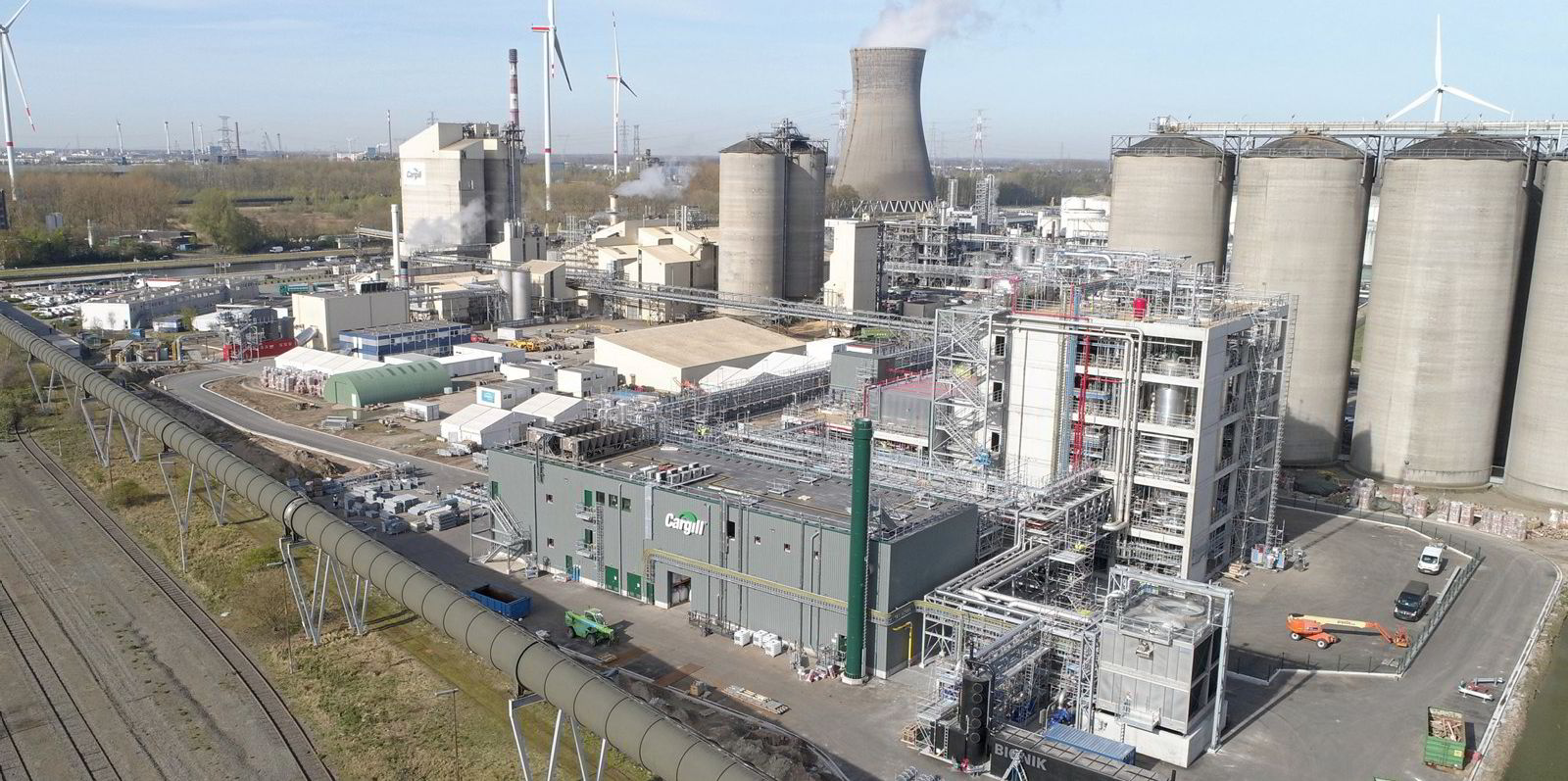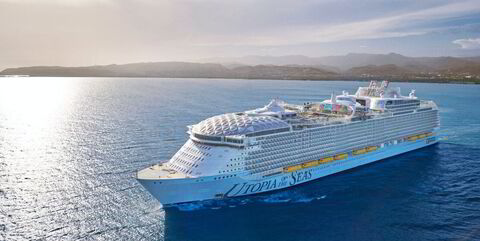Cargill Ocean Transportation has an advantage when it comes to access to biofuels.
This story is part of a TradeWinds Business Focus exploring shipping companies that are early adopters across a range of green shipping technologies and fuels.
The operator of more than 700 vessels is part of agriculture and commodities giant Cargill, which can produce more than 400,000 tonnes per day of fatty acid methyl esters (FAME), which are the main ingredients in biofuels, at its refinery in Ghent, Belgium.
The shipping unit’s marine fuels head, Olivier Josse, told the Green Seas podcast in January that the outfit plans to boost its own biofuels consumption to 50,000 tonnes in 2023, more than triple the 16,000 tonnes last year.
But Josse, who is also head of the Pure Marine Fuels joint venture with Maersk Tankers, wants others to join in.
The company and its partners have sold 7,000 tonnes of biofuels to third parties, and through Pure Marine and partnerships with bunker suppliers Oilchart International and Minerva, it hopes to ramp up those sales.
That is because the key challenge facing biofuels use in shipping is its high cost, and key to bringing that down is scale.
Biofuels are working, he said.
“After that, it just needs to be price attractive. You need the scale and then you need, also probably like everything today in shipping, a bit more clarity from the IMO and others to define the ecosystem we’re going to have to work with,” he said.



